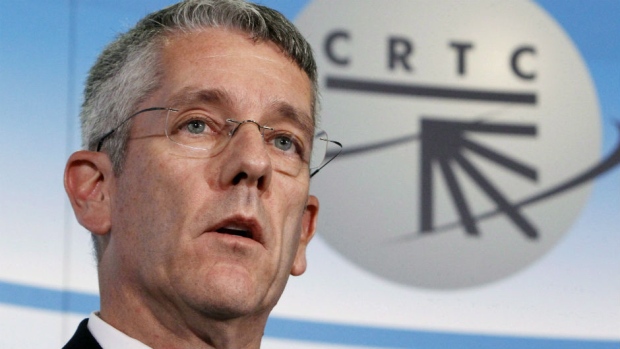Oct 6, 2016
CRTC slashes wholesale fees charged by incumbent ISPs in bid to stay competitive
, The Globe and Mail

Canada’s telecom regulator says it is taking a new step to bolster competition in the market for home Internet services by slashing the rates large providers can charge for access to their networks, criticizing the companies for proposing prices that were unfairly high.
To encourage competition at the retail level, Canada’s incumbent cable and telephone companies are required to sell wholesale access to their broadband networks to smaller competitors – such as TekSavvy or Distributel – that then sell end customers high-speed Internet service as well as home phone and television service in some cases.
The Canadian Radio-television and Telecommunications Commission sets the rates the incumbents can charge for that access based on evidence the companies provide about what it costs them to operate their networks.
But the regulator said Thursday that cost estimates the companies provided in a recent proceeding to establish updated rates were too high and said it would temporarily set lower rates. The move should benefit smaller Internet service providers (ISPs) by lowering their cost of buying wholesale service and could theoretically reduce costs for subscribers down the line.
CRTC chairman Jean-Pierre Blais, who has tried to reposition the regulator as a consumer-friendly body during his tenure, said competitive ISPs “must have access to these services at just and reasonable prices.”
“The fact that these large companies did not respect accepted costing principles and methodologies is very disturbing,” he said in a statement. “What’s even more concerning is the fact that Canadians’ access to a choice of broadband Internet services would have been at stake had we not revised these rates. As always, we strive to create a dynamic competitive telecommunications market for Canadians.”
The CRTC said in the statement that it had directed the incumbent cable and telephone companies to provide new cost estimates and “was not expecting deviation from the established costing principles and methodologies.”
“The CRTC is of the view that the rates proposed by certain of the large companies were not just and reasonable and had to be revised downwards. The CRTC is very concerned that certain large companies have not conducted their cost studies in accordance with well-established costing principles and methodologies,” the commission said.
It said it has reduced the rates some companies proposed for network access by up to 39 per cent and cut the proposed rates for the transport of Internet data by up to 89 per cent in some cases. The large companies that submitted rates the commission said were too high and had to be adjusted are Bell Canada, Cogeco, MTS, Rogers, SaskTel, Shaw, Telus and Videotron.
The commission said it will continue its analysis of the rates and costing estimates and will ask for more information from the companies and give them an opportunity to respond before it sets final rates.
In July, 2015, the CRTC ruled that the incumbent companies must provide competitors access to their highest-speed services, including fibre-optic services going directly to customers’ homes.
BCE Inc. appealed that ruling to the federal cabinet, arguing it was unfair to force the company to sell access to networks it has not even finished building yet. The government rejected the company’s appeal in May, which was seen as a victory for small ISPs.
However, at the time, providers like TekSavvy said it would still take time for them to begin offering the highest-speed services and much would depend on the wholesale rates for access that the CRTC sets.







